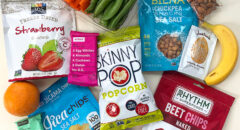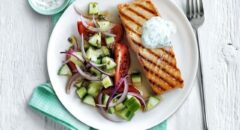
Maintaining a balanced and nutritious diet is essential for overall well-being, especially during busy college days filled with classes, activities, and commitments. However, finding time to eat well can be challenging when you're constantly on the go. With a little planning and some smart choices, you can make healthy eating a part of your daily routine. Here are some tips to help you eat well between classes and activities:
Plan Ahead
One of the keys to healthy eating on the go is preparation. Take a few minutes each week to plan your meals and snacks. Pack fruits, vegetables, nuts, and whole-grain snacks in advance. Having healthy options readily available will make it easier to resist the temptation of unhealthy fast food or sugary snacks.
Pack Portable Snacks
Opt for snacks that are easy to carry and require minimal preparation. Consider items like trail mix, pre-cut fruits and vegetables, yogurt cups, whole-grain crackers, or nut butter packets. These snacks can be conveniently stashed in your bag and enjoyed during a break.
Choose Nutrient-Dense Foods
When grabbing a quick bite, prioritize nutrient-dense foods that balance vitamins, minerals, and energy. Choose whole grains, lean proteins, healthy fats, and plenty of fruits and vegetables to fuel your body and energize you throughout the day.
Stay Hydrated
Drinking enough water is vital for staying alert and focused. Carry a reusable water bottle with you, and aim to drink water consistently throughout the day. If you find plain water boring, infuse it with slices of citrus fruits or herbs for a refreshing twist.
Opt For Balanced Meals
When you have the chance to sit down for a meal, aim for balanced options. Include a source of lean protein (such as grilled chicken, beans, or tofu), complex carbohydrates (like whole grains or sweet potatoes), and various vegetables. This combination will help you stay full and satisfied.
Utilize Campus Dining Services
Many college campuses offer dining halls or food courts with healthier options. Take advantage of these services and explore the menus to find balanced meals. Look for salads, stir-fries, grilled options, and fresh fruits and vegetables.
Read Labels
When choosing packaged snacks, read nutrition labels to make informed choices. Look for items with lower amounts of added sugars, saturated fats, and sodium. Opt for products that are higher in fiber and contain real ingredients.
Avoid Skipping Meals
Skipping meals might result in binge eating later and a drop in energy levels. Even on days when you are very busy, you should prioritize eating at regular intervals to maintain a constant metabolism and high levels of energy.
Avoid Sugary Drinks
Avoid drinking sugary sodas and energy drinks since both of these types of beverages might cause your energy levels to drop. Instead, go for water, herbal tea, or drinks that don't include any sugar.
Sleep & Stress Management
Remember that maintaining a balanced diet is simply one component of total well-being. In order to maintain your body's general health, you should prioritize getting adequate sleep and learning how to manage stress.
In conclusion, maintaining a healthy diet while juggling classes and activities is possible with some planning and mindful choices. By preparing snacks and meals in advance, making balanced choices, and staying hydrated, you can nourish your body and keep your energy levels up throughout the day. Prioritizing your health now will contribute to your overall success and well-being in the long run.








